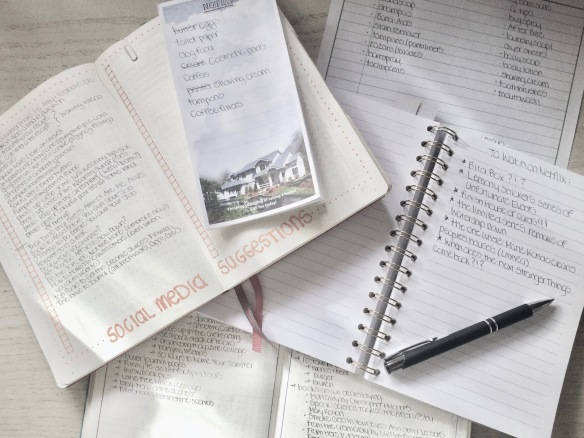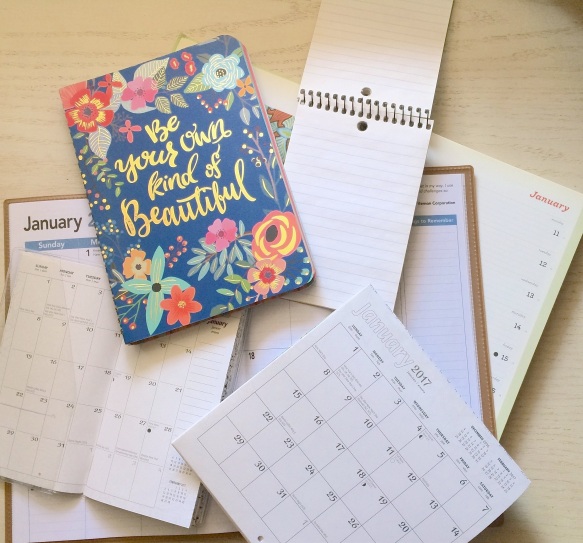It’s easy to get caught up in the excitement of purchasing a new planner. The temptation to throw out the old one and start afresh is real but there’s a few reasons as why to you shouldn’t throw out your old agenda (at least not yet).
Unless you keep an excellent diary, your agenda acts as a reminder of what you did every day the past year. This alone can provide a huge amount of valuable information to you. Your planner could act as a record of the shifts you worked, the vacations you took, appointments you had, etc. Having this as a reference could serve you in your future planning needs. (For example, when was the last time you visited the dentist? Took your dog to the vet?)
Every year when I conduct my yearly review, I use my old planner as a guide to help me set up my new one by transferring information such as birthdays, anniversaries and other important dates.
Based on what your schedule looked like last year, you may want to use your agenda to schedule reminders for yourself to visit the doctor, or get your roots touched up.
Looking at all of these dates in your calendar can also help you identify patterns and trends when planning your schedule for next year. For example, last February was so busy that I’ll think twice before scheduling any major project during that time. On the other hand, August is usually such a slow month that I’ll plan to use that time vacationing and working on more personal projects. What are the busiest times of year for you? When are you at your most productive? When do certain clients like to schedule their meetings? Your old planner contains all of this information and more.
I usually like to hold on to my old planner for a year before tossing it, but depending on your storage needs you may find you’re able to hold onto more planners for longer. (Just don’t fall into the trap of holding onto paper for the sake of it!) Not only can they be incredibly useful in identifying productive patterns, they can also provide a fun, nostalgic experience each time you flip through them. For some people, it may just look like an old agenda, but for people like me (and you!) it’s a way of remembering the past and planning for the future.
 How long do you hold onto your old agendas for? Do you find this practice useful? Email me at keepingbusyb@gmail.com or comment below and let me know what you do with your old planners. For more organizational and productivity ideas, click here and here.
How long do you hold onto your old agendas for? Do you find this practice useful? Email me at keepingbusyb@gmail.com or comment below and let me know what you do with your old planners. For more organizational and productivity ideas, click here and here.


 What are some of the lists that you keep about your likes and dislikes? Where do you store them? Are there any ideas for lists that I didn’t include here? Give me a shout below or let me know at keepingbusyb@gmail.com and I’ll add your list to my list of lists!
What are some of the lists that you keep about your likes and dislikes? Where do you store them? Are there any ideas for lists that I didn’t include here? Give me a shout below or let me know at keepingbusyb@gmail.com and I’ll add your list to my list of lists!